Filter by

German Radioactive Waste Changes in Policy and Law
This book presents the universal issue of radioactive waste management from the perspective of the German legal system, analysing how lawmakers have responded to the problem of nuclear waste over the course of the last seventy years. In this book, Robert Rybski unwraps and explains the perplexing legal and social issues related to radioactive waste. He takes readers through the entire ‘life-c…
- Edition
- -
- ISBN/ISSN
- 1000567591, 9781000567595
- Collation
- -
- Series Title
- -
- Call Number
- -
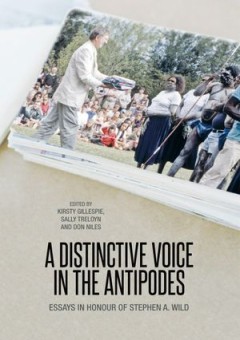
A Distinctive Voice in the Antipodes: Essays in Honour of Stephen A. Wild
This volume of essays honours the life and work of Stephen A. Wild, one of Australia’s leading ethnomusicologists. Born in Western Australia, Wild studied at Indiana University in the USA before returning to Australia to pursue a lifelong career with Indigenous Australian music. As researcher, teacher, and administrator, Wild’s work has impacted generations of scholars around the world, lea…
- Edition
- -
- ISBN/ISSN
- 9781760461119
- Collation
- -
- Series Title
- -
- Call Number
- 780
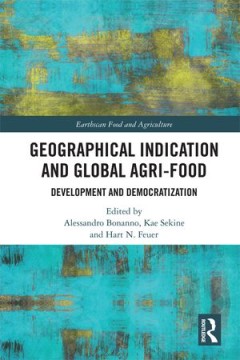
Geographical Indication and Global Agri-Food Development and Democratization
This book addresses the relevance of geographical indication (GI) as a tool for local and socio-economic development and democratization of agri-food, with case studies from Asia, Europe and the Americas. A geographical indication is a sign used on products that have a specific geographical origin and possess qualities or a reputation that are due to that origin. It provides not only a way f…
- Edition
- -
- ISBN/ISSN
- 9780429895128
- Collation
- -
- Series Title
- -
- Call Number
- -
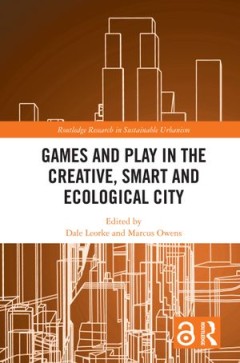
Games and Play in the Creative, Smart and Ecological City
This book explores what games and play can tell us about contemporary processes of urbanization and examines how the dynamics of gaming can help us understand the interurban competition that underpins the entrepreneurialism of the smart and creative city. Games and Play in the Creative, Smart and Ecological City is a collection of chapters written by an interdisciplinary group of scholars from …
- Edition
- -
- ISBN/ISSN
- 1000217728, 9781000217728
- Collation
- -
- Series Title
- -
- Call Number
- -
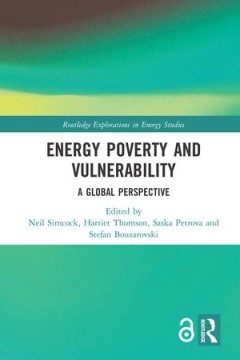
Energy Poverty and Vulnerability A Global Perspective
Energy Poverty and Vulnerability provides novel and critical perspectives on the drivers and consequences of energy-related injustices in the home. Drawing together original research conducted by leading experts, the book offers fresh and innovative insights into the ways in which hitherto unexplored factors such as cultural norms, environmental conditions and household needs combine to shape v…
- Edition
- -
- ISBN/ISSN
- 1351865293, 9781351865296
- Collation
- -
- Series Title
- -
- Call Number
- -
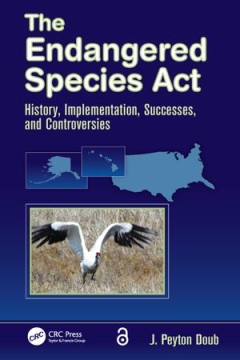
The Endangered Species Act History, Implementation, Successes, and Controver…
The complex regulations of the Endangered Species Act can be challenging for environmental professionals who must comply with them or assist clients in compliance. This volume discusses the Act using clear scientific prose that all professionals can readily comprehend. It explores the history and the basic scientific theory underlying the Act. It provides an overview of its key provisions and e…
- Edition
- -
- ISBN/ISSN
- 146650739X, 9781466507395
- Collation
- -
- Series Title
- -
- Call Number
- -
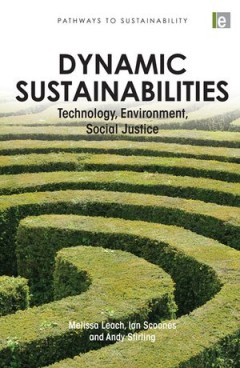
Dynamic Sustainabilities Technology, Environment, Social Justice
Linking environmental sustainability with poverty reduction and social justice, and making science and technology work for the poor, have become central practical, political and moral challenges of our times. These must be met in a world of rapid, interconnected change in environments, societies and economies, and globalised, fragmented governance arrangements. Yet despite growing international…
- Edition
- -
- ISBN/ISSN
- 1136541667, 9781136541667
- Collation
- -
- Series Title
- -
- Call Number
- -
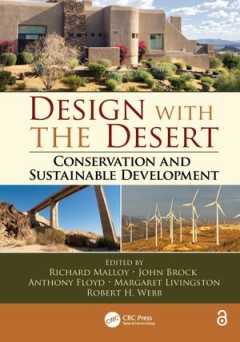
Design with the Desert Conservation and Sustainable Development
Typical development in the American Southwest often resulted in scraping the desert lands of the ancient living landscape, to be replaced with one that is human-made and dependent on a large consumption of energy and natural resources. This transdisciplinary book explores the natural and built environment of this desert region and introduces development tools for shaping its future in a more su…
- Edition
- -
- ISBN/ISSN
- 9781439881385, 1439881383
- Collation
- -
- Series Title
- -
- Call Number
- -
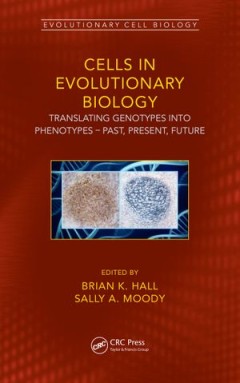
Cells in Evolutionary Biology Translating Genotypes into Phenotypes - Past, …
This book is the first in a projected series on Evolutionary Cell Biology, the intent of which is to demonstrate the essential role of cellular mechanisms in transforming the genotype into the phenotype by transforming gene activity into evolutionary change in morphology. This book —Cells in Evolutionary Biology — evaluates the evolution of cells themselves and the role cells have been view…
- Edition
- -
- ISBN/ISSN
- 9781498787871, 1498787878
- Collation
- -
- Series Title
- -
- Call Number
- -

Intelligent Circuits and Systems
ICICS-2020 is the third conference initiated by the School of Electronics and Electrical Engineering at Lovely Professional University that explored recent innovations of researchers working for the development of smart and green technologies in the fields of Energy, Electronics, Communications, Computers, and Control. ICICS provides innovators to identify new opportunities for the social and e…
- Edition
- -
- ISBN/ISSN
- 9781000404906
- Collation
- -
- Series Title
- -
- Call Number
- -
 Computer Science, Information & General Works
Computer Science, Information & General Works  Philosophy & Psychology
Philosophy & Psychology  Religion
Religion  Social Sciences
Social Sciences  Language
Language  Pure Science
Pure Science  Applied Sciences
Applied Sciences  Art & Recreation
Art & Recreation  Literature
Literature  History & Geography
History & Geography